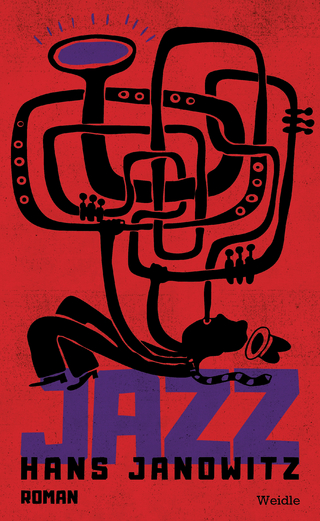
Schumann's Piano Cycles and the Novels of Jean Paul
Seiten
2004
University of Rochester Press (Verlag)
978-1-58046-145-0 (ISBN)
University of Rochester Press (Verlag)
978-1-58046-145-0 (ISBN)
A study on the influence which the German novelist Jean Paul Friedrich Richter had upon Robert Schumann's music.
Robert Schumann frequently expressed his deep admiration for the novels of Jean Paul Friedrich Richter, the late-eighteenth-century German novelist, essayist, and satirist. Schumann imitated Jean Paul's prose style in his own fiction and music criticism, and said once that he learned "more counterpoint from Jean Paul than from my music teacher."
Drawing on the recent, groundbreaking work in musico-literary analysis of scholars such as Anthony Newcomb,John Daverio, and Lawrence Kramer, Erika Reiman embarks on a comparative study of Jean Paul's five major novels and Schumann's piano cycles of the 1830s, many of which are staples in the repertoire of concert pianists today.
The present study begins with a thorough review of Jean Paul's literary style, emphasizing the digressions, intertextuality, self-reflexivity, and otherworldliness that distinguish it. The similarly digressive style that Schumanndeveloped is then examined in his earliest works, including the enduring and highly original Carnaval [1835], and in cycles of the later 1830s, notably Davidsbündlertänze and Faschingsschwank aus Wien. Finally, an analysis of three one-movement works from 1838-39 reveals links with Jean Paul's exploration of the idyll, an ancient genre that had experienced an eighteenth-century revival.
Throughout, the author attempts to keep inmind the actual sound and performed experience of the works, and suggests ways in which an awareness of Jean Paul's style might change the performance and hearing of the cycles.
Erika Reiman, received her Ph.D. in Musicology from the University of Toronto [1999] and has taught at Brock University, Wilfrid Laurier University, the University of Guelph, and the University of Toronto; she is also active as a pianist and chamber musician.
Robert Schumann frequently expressed his deep admiration for the novels of Jean Paul Friedrich Richter, the late-eighteenth-century German novelist, essayist, and satirist. Schumann imitated Jean Paul's prose style in his own fiction and music criticism, and said once that he learned "more counterpoint from Jean Paul than from my music teacher."
Drawing on the recent, groundbreaking work in musico-literary analysis of scholars such as Anthony Newcomb,John Daverio, and Lawrence Kramer, Erika Reiman embarks on a comparative study of Jean Paul's five major novels and Schumann's piano cycles of the 1830s, many of which are staples in the repertoire of concert pianists today.
The present study begins with a thorough review of Jean Paul's literary style, emphasizing the digressions, intertextuality, self-reflexivity, and otherworldliness that distinguish it. The similarly digressive style that Schumanndeveloped is then examined in his earliest works, including the enduring and highly original Carnaval [1835], and in cycles of the later 1830s, notably Davidsbündlertänze and Faschingsschwank aus Wien. Finally, an analysis of three one-movement works from 1838-39 reveals links with Jean Paul's exploration of the idyll, an ancient genre that had experienced an eighteenth-century revival.
Throughout, the author attempts to keep inmind the actual sound and performed experience of the works, and suggests ways in which an awareness of Jean Paul's style might change the performance and hearing of the cycles.
Erika Reiman, received her Ph.D. in Musicology from the University of Toronto [1999] and has taught at Brock University, Wilfrid Laurier University, the University of Guelph, and the University of Toronto; she is also active as a pianist and chamber musician.
List of Tables
List of Musical Examples
Acknowledgments
Introduction
1. "Seldom Satisfied, But Always Delighted": Jean Paul and His Novels
2. Digressive Dances: Schumann's Early Cycles
3. Carnaval: Redefining Convention, Transcending Boundaries
4. Higher and Lower Forms
5. Schumann's and Jean Paul's Idyllic Vision
Epilogue
Appendix
Notes
Bibliography
Index
| Erscheint lt. Verlag | 15.4.2004 |
|---|---|
| Reihe/Serie | Eastman Studies in Music |
| Zusatzinfo | 84 line illus. |
| Verlagsort | Rochester |
| Sprache | englisch |
| Maße | 152 x 229 mm |
| Gewicht | 568 g |
| Themenwelt | Kunst / Musik / Theater ► Musik ► Instrumentenkunde |
| Kunst / Musik / Theater ► Musik ► Klassik / Oper / Musical | |
| Geisteswissenschaften ► Sprach- / Literaturwissenschaft ► Anglistik / Amerikanistik | |
| ISBN-10 | 1-58046-145-X / 158046145X |
| ISBN-13 | 978-1-58046-145-0 / 9781580461450 |
| Zustand | Neuware |
| Informationen gemäß Produktsicherheitsverordnung (GPSR) | |
| Haben Sie eine Frage zum Produkt? |
Mehr entdecken
aus dem Bereich
aus dem Bereich
Buch | Softcover (2024)
Edition Zwischentöne (Verlag)
19,00 €
Roman
Buch | Hardcover (2024)
Wallstein Erfolgstitel - Belletristik und Sachbuch (Verlag)
20,00 €


